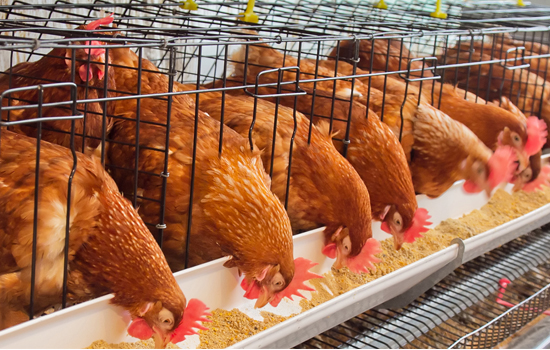The high temperature laying hens in summer
- font size decrease font size increase font size
1. Environmental temperature affects the peristalsis of digestive tract and secretion of digestive enzymes of laying hens, thus changing the emptying rate of food and affecting the digestion of feed. Under high temperature stress, the activities of intestinal protease and amylase decrease, which may be mainly caused by the decrease of enzyme secretion.
2. In actual production, the feed intake decreases by 1~1.5g/d for every l~C increase in ambient temperature of 25-340C, and 4.2g/d for every loC increase from 32-36 C. in poultry equipment manufacturer in china。

3. When the chicken is in the heat stress zone, the animal does not need to produce heat to maintain body temperature due to the inhibition of feed intake and production, and the total metabolism of the body is relatively low. However, chickens need to enhance their metabolic reaction in the process of dissipating the waste heat in the body. Therefore, the metabolic intensity of nutrients in the body is higher than that in the moderate temperature zone.
4, when the high temperature attacks, survival requires heat dissipation, which will cause a series of reactions-heartbeat and breathing faster. These physiological reactions require energy. Energy can only come from the decomposition of proteins, carbohydrates and fats. Energy used for stress cannot be used for egg production, so egg production usually decreases under high temperature stress.
